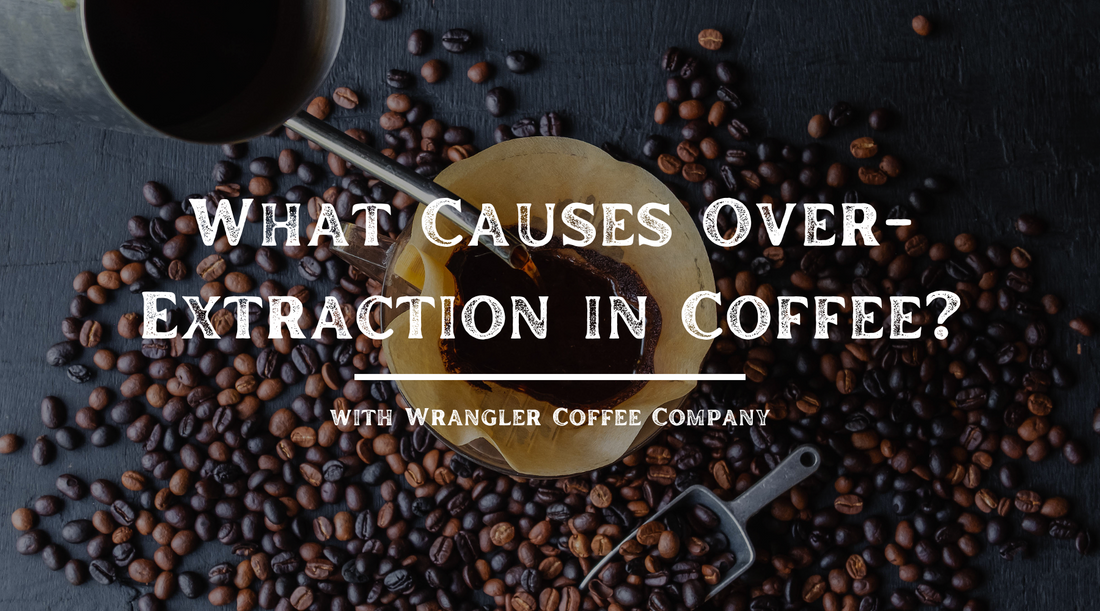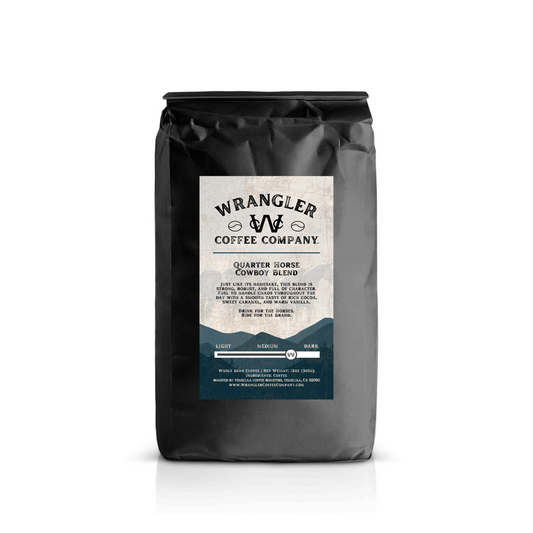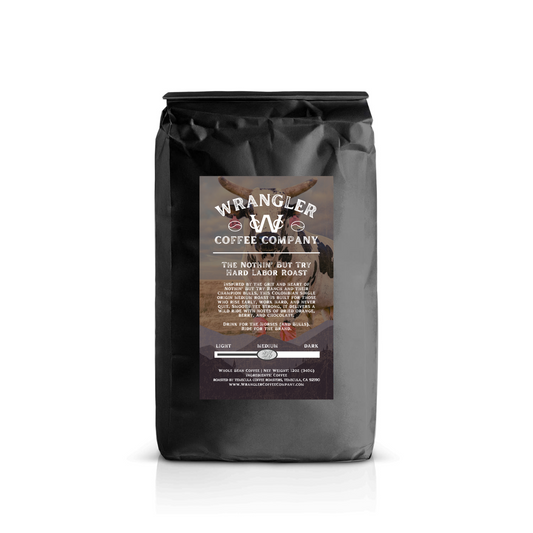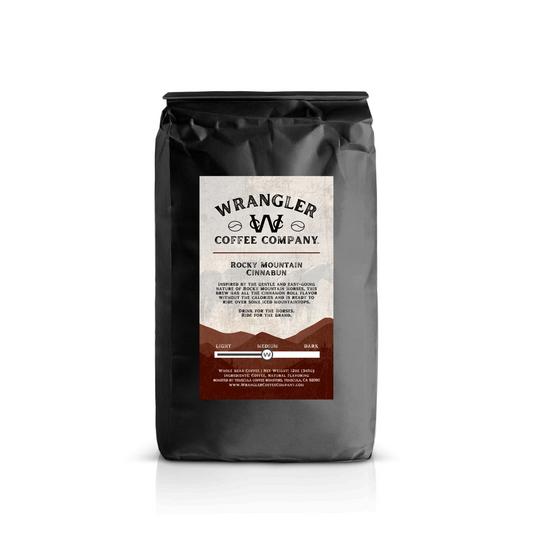
What Causes Over-Extraction in Coffee?
Share
At Wrangler Coffee Company, we believe that the key to a perfect cup of coffee lies in mastering the brewing process. One of the most common issues that can ruin your coffee experience is over-extraction. Over-extraction occurs when too many compounds are extracted from the coffee grounds, resulting in a bitter, harsh, and unpleasant flavor. In this blog post, we'll explore what causes over-extraction with your coffee, how to avoid it, and how to ensure a consistently great brew every time.
Understanding Over-Extraction
Over-extraction happens when water extracts too many soluble compounds from the coffee grounds during brewing. While some extraction is necessary to bring out the desired flavors, too much can lead to an imbalance, highlighting bitter and astringent notes. Several factors contribute to over-extraction, including grind size, brewing time, water temperature, and coffee-to-water ratio.
Grind Size
The grind size of your coffee beans plays a crucial role in the extraction process. If the grind is too fine, water flows through the coffee grounds too slowly, resulting in prolonged contact time. This can cause over-extraction, as the water has more time to pull out undesirable compounds.
- Solution: Aim for the right grind size based on your brewing method. For example, a medium grind works well for drip coffee makers, while a coarse grind is ideal for French press. Experiment with different grind sizes to find what best suits your taste.
Brewing Time
Brewing time, or the duration that water is in contact with the coffee grounds, significantly affects the extraction process. If the brewing time is too long, over-extraction can occur, leading to a bitter taste.
- Solution: Follow recommended brewing times for your specific method. For instance, a typical pour-over should take around 3-4 minutes, while a French press should steep for about 4-5 minutes. Pulling a shot of espresso typically takes between 25 and 30 seconds. Adjust your timing if you notice bitter flavors in your coffee.
Water Temperature
Water temperature is another critical factor in the extraction process. Ideally, water should be between 195°F and 205°F (90°C to 96°C) for optimal extraction. Water that's too hot can cause over-extraction by dissolving too many compounds too quickly.
- Solution: Use a thermometer to monitor the temperature of your brewing water. If your coffee maker doesn’t allow for temperature control, consider pre-boiling water to the desired range and then using it for brewing.
Coffee-to-Water Ratio
The coffee-to-water ratio is the proportion of coffee grounds to water used during brewing. Using too much coffee relative to the amount of water can result in over-extraction, making the coffee taste overly bitter. More coffee doesn't necessarily mean more strength - at least not in a good way.
- Solution: Follow standard coffee-to-water ratio guidelines, such as using 1 to 2 tablespoons of coffee per 6 ounces of water. Adjust the ratio to suit your taste preferences, but be cautious not to use too much coffee.
Inconsistent Grind Size
Inconsistent grind sizes can lead to uneven extraction. If some grounds are too fine and others are too coarse, the finer particles may become over-extracted while the coarser ones are under-extracted, resulting in an unbalanced cup of coffee.
- Solution: Invest in a high-quality burr grinder, which provides a more consistent grind compared to blade grinders. Consistency in grind size helps ensure an even extraction process, leading to a better-tasting coffee.
Poor Quality Coffee Beans
Low-quality coffee beans can also contribute to over-extraction. Beans that are old, stale, or improperly roasted may contain defects that become more pronounced when over-extracted, resulting in a bitter and unpleasant flavor.
- Solution: Always use fresh, specialty-grade coffee beans from trusted sources (like Wrangler Coffee Company) who know their coffee. High-quality beans, when brewed correctly, can produce a rich, balanced, and flavorful cup of coffee.
Stirring or Agitating Too Much
While some agitation is necessary to ensure even extraction, over-stirring the coffee grounds during brewing can lead to over-extraction. Excessive agitation can break down the coffee particles too much, increasing the surface area exposed to water.
- Solution: Stir your coffee grounds gently and only as needed to ensure even saturation. Avoid vigorous stirring or shaking that can cause over-extraction.
Perfecting Your Brew with Wrangler Coffee Company
Understanding what causes over-extraction is the first step toward perfecting your coffee brewing skills. By paying attention to grind size, brewing time, water temperature, coffee-to-water ratio, and the quality of your beans, you can avoid the pitfalls of over-extraction and enjoy a consistently great cup of coffee.
At Wrangler Coffee Company, we're dedicated to helping you achieve the best coffee experience possible. Our specialty-grade coffee beans are carefully sourced and roasted to bring out the best flavors, ensuring a delicious and satisfying brew every time. Explore our selection of high-quality beans and discover the difference that proper brewing techniques can make.




